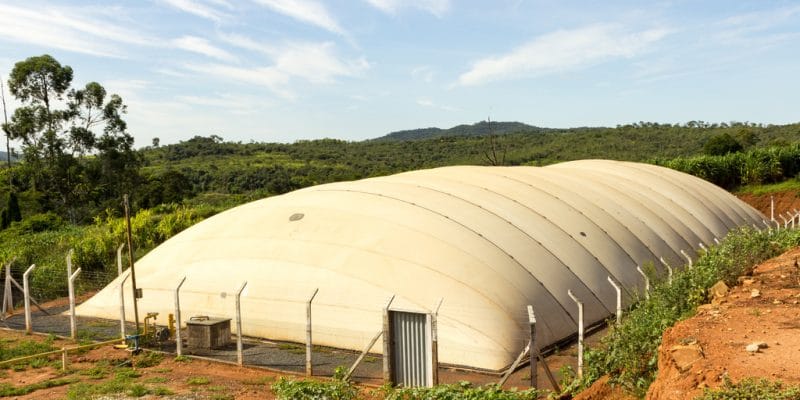The Swiss government is supporting a project to develop 60,000 biodigesters in Senegal. The installations will be used to produce biogas from cattle dung and faecal sludge in rural areas.
Reducing deforestation in rural areas of Senegal. This is the objective of the biogas production project supported by the Swiss government. The partnership agreement for this project was signed on July 6th, 2021 between the head of the Swiss Federal Department of the Environment, Transport, Energy and Communications (Detec), Simonetta Sommaruga, and the Senegalese Minister for the Environment and Sustainable Development, Abdou Karim Sall.
A total of 60,000 biodigesters will be installed across Senegal. The devices will be used to produce biogas from human and animal excrement. The domestic biogas will be used for cooking in households. In addition to combating deforestation, the initiative also aims to reduce respiratory and eye diseases associated with the use of firewood and to develop income-generating activities such as market gardening, cattle fattening and milk pasteurisation. According to a report by the Senegalese Ministry of Energy’s Energy Information System (SIE), 87% of Senegalese households use firewood and charcoal as cooking fuel. Biogas will also be used for electricity generation.
Read Also –
The new biodigesters will be built as part of Senegal’s National Domestic Biogas Programme (PBN-SN), which will be set up in 2019 with Dutch cooperation. “A 10 m3 biodigester produces at least 2.5 m3 of biogas per day. This is enough to meet the energy needs of a household of 10 people for cooking. This corresponds to a daily consumption of 12.5 kg of firewood or 7.5 kg of charcoal,” explains Matar Sylla, the PBN-SN coordinator. The digestate from the fermentation of the faecal matter will be used as fertiliser for agriculture.
The rural biogas project also aims to improve the management of agricultural waste in Senegal. Livestock dung and faecal sludge are a major factor in polluting groundwater.
Inès Magoum







